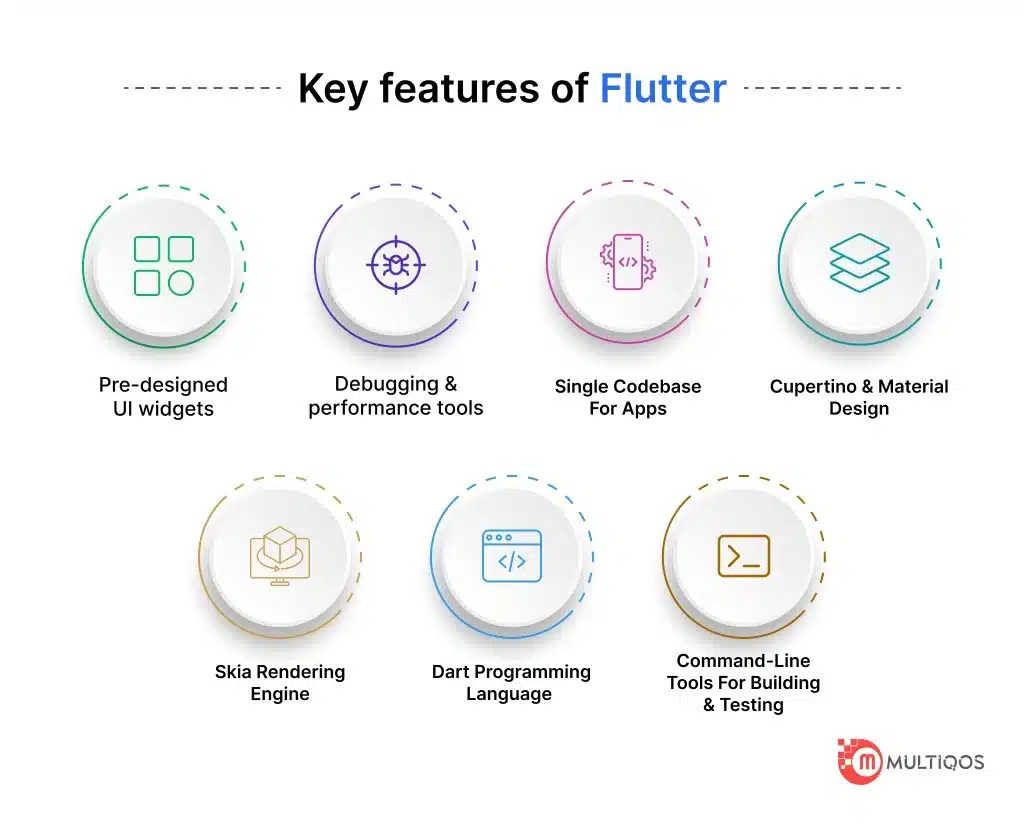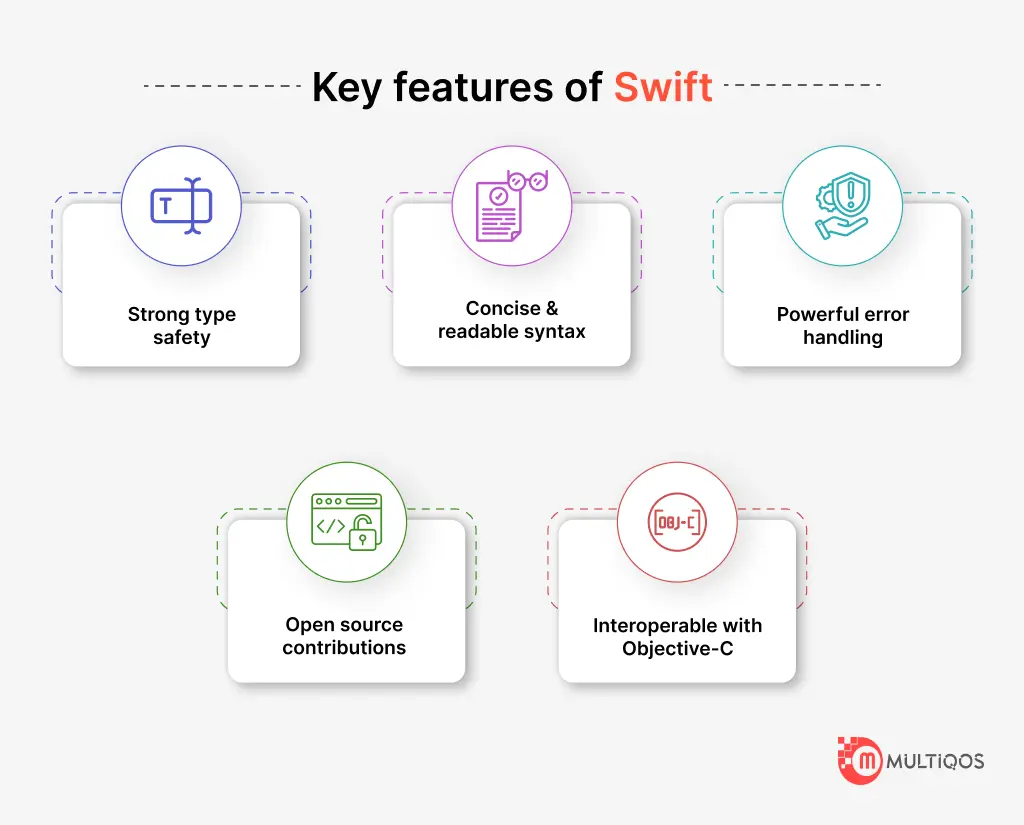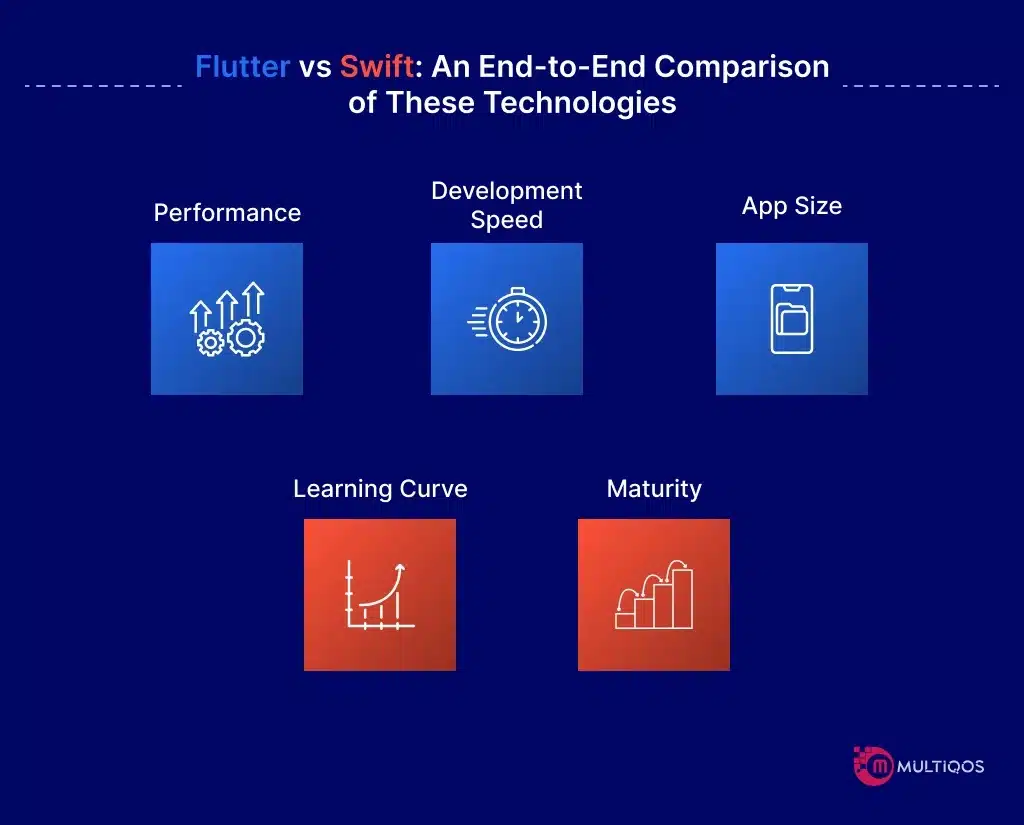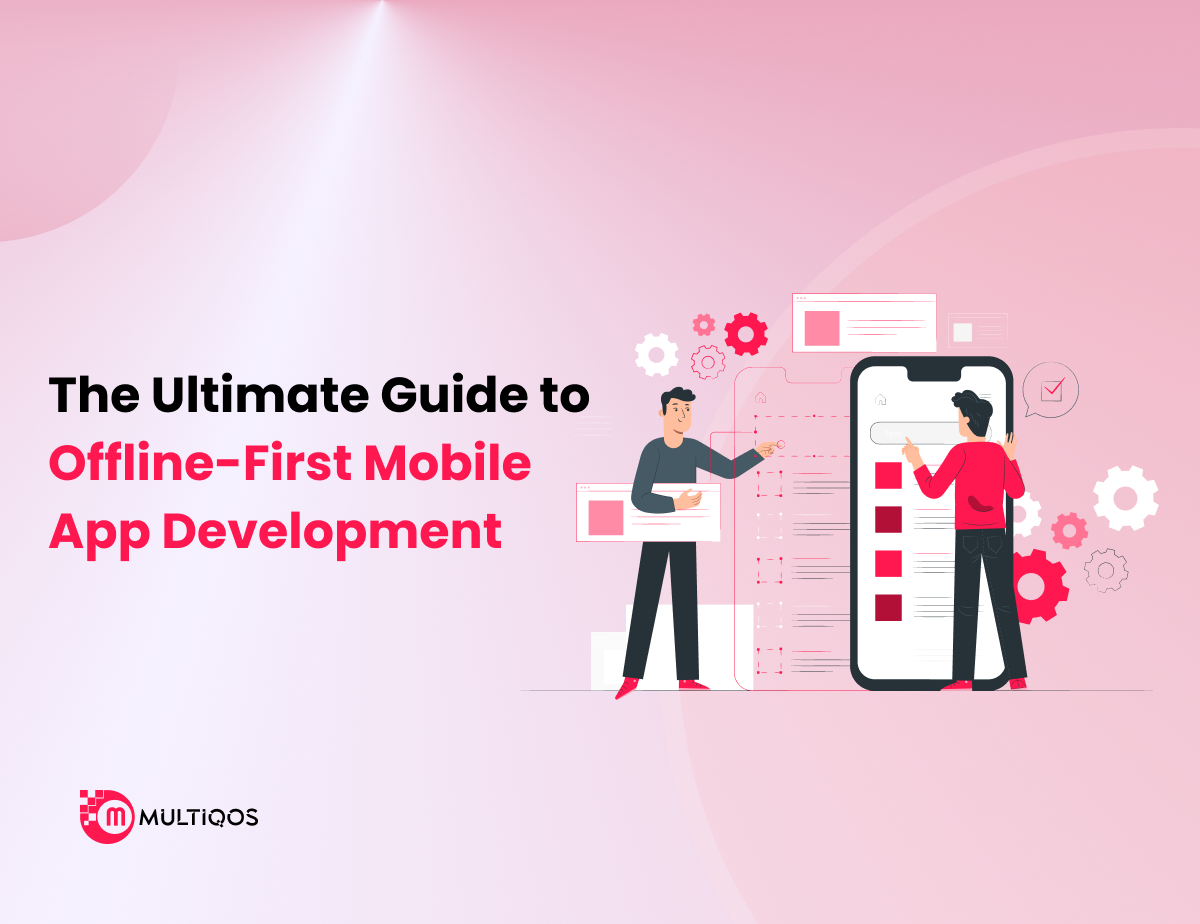Flutter vs Swift: Which is the Best for iOS App Development?
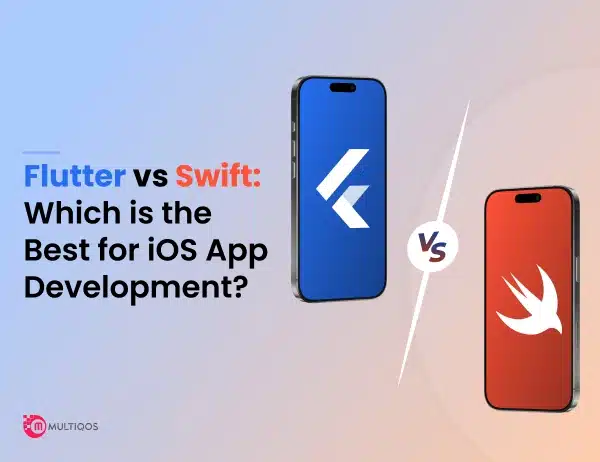
Today, mobile apps are indispensable for every business regardless of its size and domain.
They open new streams of revenue and extend a brand’s reach. However, when it comes to creating a successful mobile application, there are lots of mobile app development challenges that must be solved.
From determining the best features to choosing the right development platform, there are a myriad of decisions that can be made. You can either develop a native Android or iOS app or a cross-platform app that can run on these operations systems offering cost benefits.
Just like Android, there are plenty of options when it comes to developing iOS mobile apps. There are a bunch of platforms to create your app. Swift and Flutter are two of those choices. But should you choose Flutter or Swift?
When it comes to the question of Flutter vs Swift you must understand their unique sides to make the right decisions. So, buckle up as we explore the differences between Flutter and Swift in this article to help you make the correct choice for iOS app development.
Let’s dive in without further ado!
A Detailed Overview of Flutter
Today, there are various frameworks and platforms to build mobile applications. Flutter is among them that is widely used by developers. It is a UI SDK for mobile app development. As an open-source framework, it is available for free and can be easily downloaded. Flutter is developed by Google along with a growing community.
Key features of Flutter
- Offers a vast library of pre-designed UI widgets.
- Developer tools for debugging and performance optimization.
- Enables developers to write a single codebase for apps.
- Helps build appealing apps with Cupertino widgets and Material design.
- It has its own rendering engine called Skia.
- Uses Dart programming language for app development.
- Offers command-line tools to build, compile, test, and launch apps.
How Does Using Flutter Benefit App Development?
Flutter offers many great features and it helps create top-notch iOS mobile apps. The following are the key advantages of choosing Flutter for iOS app development.
Cross-Platform Development
The most important benefit of the Flutter framework is cross-platform development. Now you may wonder, what does it mean? It simply means that you can develop mobile applications that can run on multiple operating systems. As a result, your mobile app will run on both Android and iOS operating systems.
Budget-friendly Development
One advantage of choosing Flutter over Swift is that you can create cost-effective apps. It means you can develop apps with less budget and resources than you create a native mobile app. Cross-platform apps use a single codebase which means, you don’t need to create separate mobile apps for your business.
Hot Reloading
Hot reloading is quite a useful feature in mobile app development. This feature helps in experimentation, developing UIs and features, and fixing bugs without any hassle. It reflects the code change in real-time so that the adjusted UI can be viewed straight away.
Great Tooling
There is excellent tooling in Flutter for iOS app development. This set of tools includes a compiler, IDE, and more that help in developing robust mobile apps. These tools are essential for creating iOS mobile applications.
Faster UI Development
Flutter offers various features and components that help create user interfaces quickly and easily. It can be used to create engaging user interfaces with minimum coding. Plus, you can test the UIs on devices to ensure that they seamlessly render on various devices.
An Overview of Swift
Swift is simply a programming language that is used to develop apps for Apple devices. It is developed by Apple to allow beginners and experts alike to create engaging and powerful iOS apps. It is a flexible and high-performance language.
Key features of Swift
- With a strong type safety system, Swift apps are more secure because variables are defined with specific types.
- Swift apps are easy to maintain because of their concise and readable syntax.
- A powerful error-handling system allows developers to resolve errors in code instantly.
- It’s an open source project and anyone can contribute to it.
- It offers interoperability with Objective-C allowing developers to reuse code.
How Does Using Swift Benefit in iOS App Development?
Swift is a great programming language with excellent benefits. It is the standard language for creating native iOS applications. The following are the key advantages of choosing Swift for iOS mobile app development.
Performance
Creating a native mobile app offers excellent performance compared to cross-platform apps because they are built specifically for that particular operating system. Hence, they are optimized for that OS. Swift is used to create native mobile apps. Creating a mobile app with Swift offers excellent performance as apps built with this programming language will be native.
Integration
Swift doesn’t restrict from using other frameworks or libraries when developing iOS applications. You can seamlessly integrate it with many kinds of libraries and frameworks. Hence, it offers flexibility in iOS app development that helps build robust applications by combining its power with other technologies.
Tools
There are various tools for developers to create engaging and feature-rich iOS applications with Swift. So, developers can easily learn and use this programming language to create mobile apps. The different tools available to work with Swift include compilers, code editors, code analyzers, and more.
Learning Curve
Swift can be easily adopted by both beginners and experienced developers. They don’t need to learn new concepts as common programming concepts apply to this programming language. Besides, using Swift in mobile app development also cuts development time.
Flutter vs Swift: An End-to-End Comparison of These Technologies
Performance
When it comes to Flutter vs Swift based on performance, Swift takes an edge over Flutter. The reason for better performance is Swift’s ability to generate native code. On the other hand, there are some overheads with Flutter that make a mobile app heavy and affect its performance.
Although Flutter offers optimal performance with AOT and the Dart language it uses. However, Swift’s native code is faster because it directly communicates with the device and Flutter offers cross-platform code which isn’t as optimized as the native code.
Development and Integration
Both Swift and Flutter offer excellent tools and methods to develop iOS applications. There is a wide range of plugins and packages available with the Flutter framework that can be integrated to build excellent mobile apps.
Besides, it also offers third-party integration like Google Maps and Firebase. On the other hand, Swift also offers a wide range of APIs and frameworks to create robust iOS mobile applications. In addition, there are many advanced tools and features including XCode that help streamline and expedite coding.
Development Speed
Swift is known for its speed and agility when it comes to mobile app development. As a developer-friendly programming language with a moderate learning curve, Swift is an impressive choice for developing mobile apps for iOS devices in a shorter timeframe.
An XCode command line helps calculate development time when the development process is completed. Apart from this, it also offers various frameworks and system APIs that speed up the development time resulting in faster time to market.
On the other hand, Flutter offers a shorter development timeframe with a single codebase. It allows developers to create cross-mobile apps resulting in reduced development time and cost. Further, it abstracts most app development concepts that expedite the app creation process. Besides the hot reload feature helps speed up development and experimentation by updating the changes in real time.
Size of App
The app size plays a crucial role in defining the success of an iOS app development technology. Swift builds native artifacts with the use of XCode. Typically, the size of an iOS app built in the XCode environment is around 25 MB or more in size.
On the other hand, apps created with the Flutter framework have a size of about 52.4 MB or more which is slightly bigger than those created with Swift. Besides, the iPhone debugger and build process increases the size. Moreover, there is only a slight difference in the size when comparing Swift and Flutter.
Learning Curve
Knowing the learning curve for each of these app development technologies helps you understand which technology you should prefer over the others to build apps faster. Swift is fairly easy to learn for developers with a prior understanding of Objective-C.
On the other side, Flutter has a steeper learning curve because it requires learning a new programming language Dart, and several framework concepts.
Configurations and Settings
Native iOS app development requires fewer configurations and isn’t tedious to begin coding. It just requires XCode and a macOS machine to code and build an iOS mobile application.
However, developing a mobile app with Flutter requires extensive configurations and settings. Downloading and setting up the Flutter software development kit takes a little time and when everything is set, coding can be started.
Many tools are required to build a mobile app with Flutter. Plus, there are only a few resources available for Flutter compared to native technologies.
Reusability
There are various reusable components that can be used with Flutter to create mobile apps in the least time. Developers don’t have to create many UI components from scratch. With an extensive library of components and widgets, creating different sections of a mobile app is easy and quick.
Swift offers a wide range of system APIs and frameworks that allow reusable components. Consequently, developers have reusable components for various iOS applications resulting in effective and efficient app development.
Maturity
Flutter is a relatively new mobile app development platform compared to Swift as the former was released in 2017 and the latter was launched in 2014. So, we can understand that Swift is more mature with a large user base.
Now that you have seen the full comparison of Swift vs Flutter, you can determine which is the right option for your project. However, the final decision depends on your requirements. You must consider the features of different frameworks to pick the right one for your iOS mobile app development project.
No matter which one between Swift and Flutter you choose, we at MultiQoS will help you develop the right app. Our iOS app developers have excellent experience in developing iOS apps for a wide range of businesses. Leverage our experience and expertise to create a cutting-edge app for your business.
Frequently Asked Questions
The decision to learn Swift or Flutter primarily depends on your goals and project needs. If your goal is to develop a fast, intuitive, and optimized mobile app, then you should prefer Swift over Flutter. Well, it doesn’t mean that you cannot build fast and intuitive apps with Flutter, rather it means that you can build apps that integrate seamlessly into your device.
Apps developed with Swift are native apps which means these apps are specifically developed for iOS devices. However, Flutter helps to create cross-platform applications that are not built for a specific operating system. But these apps can be run on multiple devices which makes them cost-effective.
Yes, Flutter is an excellent platform to develop mobile apps for iOS devices. It offers useful features and tools that streamline the development process and minimize the timeframe and cost. The best thing about Flutter is you can build a cross-platform application that can run on both Android and iOS devices.
So, you can have a single app with a codebase shared across multiple operating systems. This way you can reduce costs and time in app development. Besides, you can build feature-rich mobile apps by using reusable components with Flutter. All in all, it is the right option to develop mobile applications.
Yes, you can migrate your native iOS application to Flutter by refactoring the code. It involves changing internal design, structure, and technology without affecting the external behavior of a mobile application.
At MultiQoS, we can help you migrate your native iOS mobile app to Flutter. Our developers will ensure a smooth migration and implement additional functionality as per your requirements. Contact us to learn more about our migration process.
Yes, you can harness the power of both Swift and Flutter to develop robust iOS mobile applications. Using Swift with Flutter will give you an extra edge when creating iOS applications. It will enable you to leverage the hardware features and functionalities of iOS devices.
So, you can develop apps that access hardware functionality seamlessly. Besides, you get the benefits of the Flutter app development framework. All in all, this option will help you create an efficient and optimized mobile app for iOS devices.
Get In Touch

